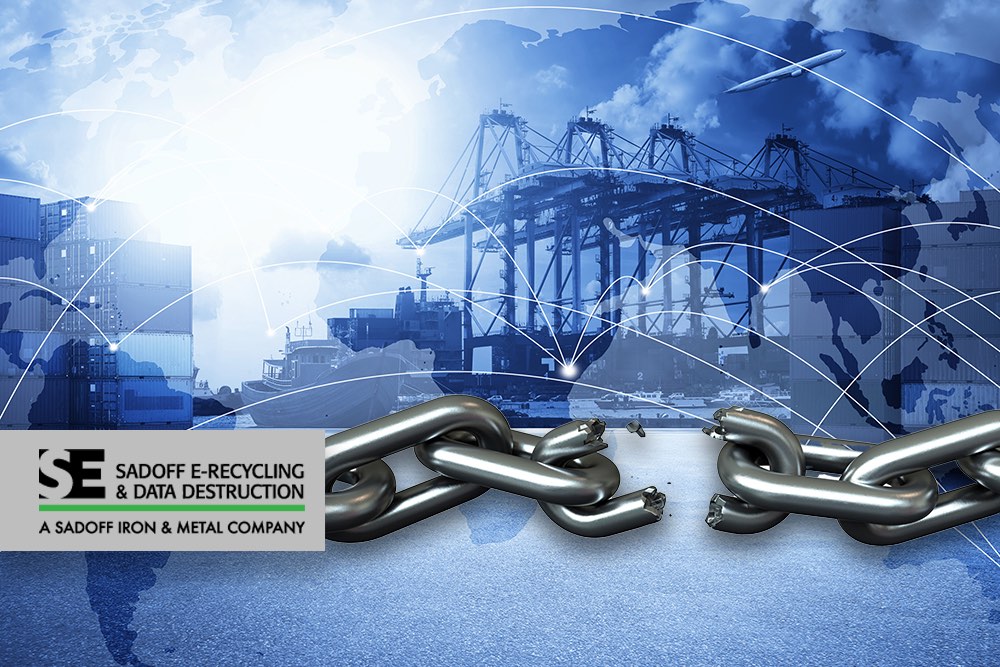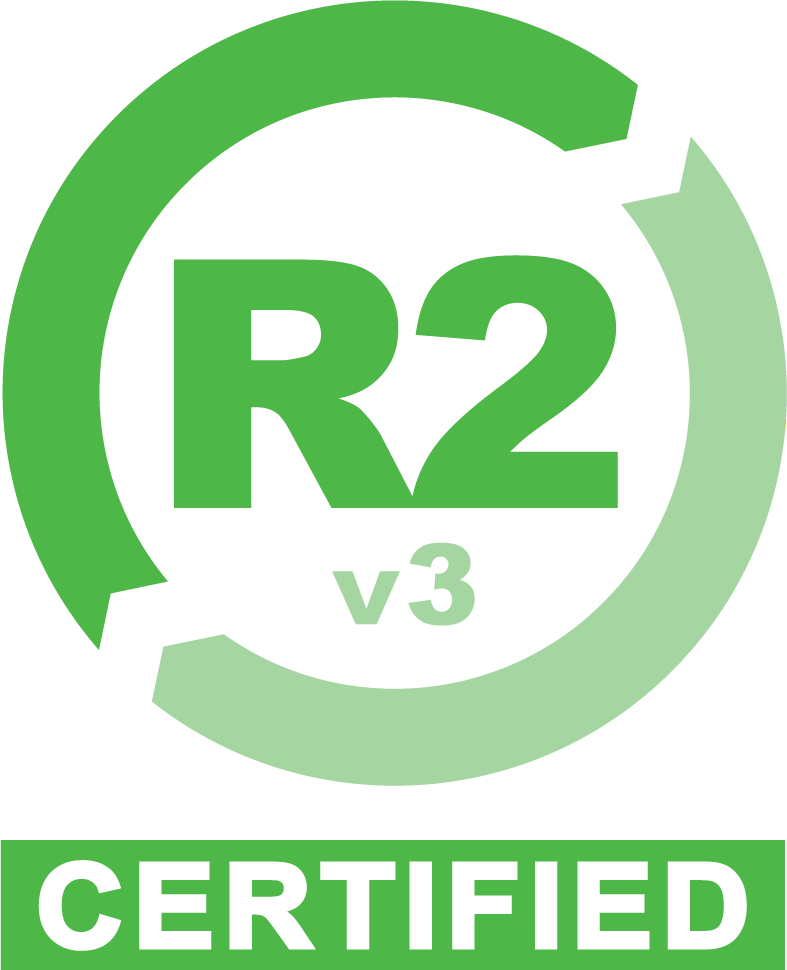E-Recycling’s Role in Easing Supply Chain Constraints
 29
29 Dec
When the pandemic first arrived in 2020, nobody could predict the impact it would have on the global economy, but as the months of lockdown continued, it became abundantly clear the effects would be profound. As consumer demand fell and the available workforce dwindled, business and industries around the world shut down to wait out the storm. Many still haven’t reopened … some never will.
As society slowly returns to a state of pseudo-normality, the economic destruction wrought by the pandemic is becoming increasingly evident. One of the most obvious effects is the disruption of global supply chains in almost every industry.
The reduction in lockdowns and other restrictions, coupled with government financial incentives and rising consumer confidence, has caused demand for products to skyrocket. Meanwhile, supply chains are struggling to bounce back as suppliers and manufacturers face shortages of raw materials, components, and labor. At the same time, distributors are dealing with similar labor scarcity, restrictive border controls, and shipping bottlenecks caused by imbalances in the previously well-oiled machine of global transportation.
Unfortunately, the immediate future doesn’t look promising either. According to experts like Tim Uy of Moody’s Analytics, supply chain issues “will get worse before they get better.”
E-Recycling’s Economic Impact Goes Far Beyond Environmental Issues
Surprisingly, the e-recycling industry finds itself in a very unexpected position right now: We have the opportunity to alleviate some of the negative impact of these supply chain constraints in a variety of sectors, most notably electronic components, rare earth metals, and select raw materials.
When people think about e-recycling, what typically comes to mind are the positive environmental effects of reducing pollution and protecting our water supply. Most are also aware of how recovering components and raw materials from obsolete electronics can help mitigate the demand for dwindling raw materials and the energy needed to obtain them. What many don’t know, however, is how e-recycling can simplify many supply chain complexities, shorten delivery timelines, reduce material and component costs, and fill gaps in availability for many products.
For example, one item currently in short supply is integrated circuit (IC) chips. Although many of these chips are proprietary to specific products, the vast majority are more commonplace and can be used in a variety of different applications. More importantly, their design and functionality have remained unchanged for years, which means they are often found in obsolete electronic devices and components. Once data is securely destroyed and these chips are harvested by e-recycling technicians, they can quickly enter the supply chain and refill empty or rapidly shrinking inventories. In doing so, raw materials and energy are saved, pollution is minimized, and more importantly right now, items needed to alleviate product shortages and bolster the economy become more readily available.
Many raw materials recovered in the e-recycling process are also in high demand in this post-pandemic economic upheaval. Right now, rare Earth elements like gold, platinum, and palladium, as well as more common metals like copper, iron, and aluminum, are often expensive and/or difficult to obtain. The worsening labor shortage, combined with the ongoing chaos within the transportation infrastructure, has created shortages that are unlikely to abate anytime soon.
Making a Difference in the Global Economic Crisis
Nobody, including our team at SEDD, could have anticipated the impact COVID-19 would have on the global supply chain, much less on the e-recycling industry specifically. We’ve always been committed to making a difference by helping businesses and individuals reduce their impact on the environment, assisting in the preservation of mankind’s limited supply of precious raw materials, and saving companies money in manufacturing and disposal costs along the way. The results are sometimes subtle and difficult to see, but satisfying, nonetheless.
What we never expected was an opportunity to affect people’s lives in such a profound and immediate way. What we do at SEDD matters now more than ever, and we’re honored to be called to the challenge, but we can’t do it alone. Right now, millions of electronic components and thousands of tons of badly needed raw materials are inside the electronic devices hidden in drawers, closets, basements, garages, storerooms, and warehouses in every corner of the world … and in every corner of YOUR world. We just need to get our hands on it.
Spend a few moments right now thinking about the obsolete items you have tucked away throughout your home, office, or company. Gather them up and bring them to a reputable e-recycling drop-off location near you. Don’t know where one is? View our list of locations or contact us and we’ll help you find one. If you have a lot of items to donate, even better! We can help transport them to a nearby e-recycling facility and address any needs you may have for certified data destruction.
Now let’s help save the world, and the economy, together!
Tags: e-recycling, electronics recycling, sustainabilityCategorized in: E-Recycle, Electronics Recycling, Sustainability




 Google map directions
Google map directions
 Google map directions
Google map directions
 Google map directions
Google map directions
 Google map directions
Google map directions
 Google map directions
Google map directions
 Google map directions
Google map directions
 Google map directions
Google map directions